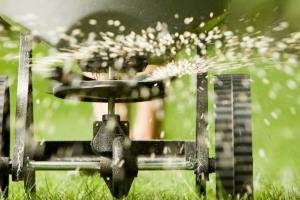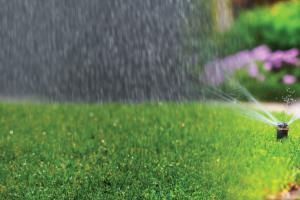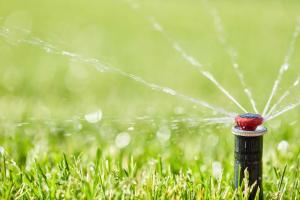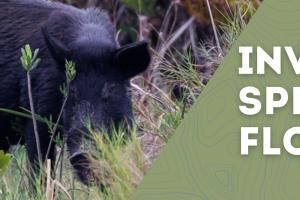Search Content
Displaying results 1 - 20 of 4110
One of the best places to take on actions that help protect water quality and conserve water resources is in your own yard. If you’re not allowed to or don’t have a yard, check in with your teachers to see if you and your friends can make positive changes right at school! Small changes outdoors can make a big difference in protecting Florida’s environment and keeping your local watershed healthy.
The number of people moving to Florida is growing every…
Certifying excellence in water conservation, saving resources and protecting the environmentThe Florida Water Starsm program is a voluntary certification program for new residential and commercial construction and existing home renovation. The program encourages water efficiency in appliances, plumbing fixtures, irrigation systems and landscapes, as well as water quality benefits from best management practices in landscapes. An average Florida Water Star homeowner…
Fertilizing your lawn the right way can make a big difference for Florida’s water quality. When fertilizers are applied incorrectly, they can wash into nearby water bodies, harming ecosystems and diminishing water quality. This guide will help you understand the best practices for fertilizing responsibly, following local regulations and protecting Florida’s unique environment Why Fertilizing Responsibly Matters More than 1,000 new residents move to Florida daily,…
We all play a role in protecting and conserving our water resources, both above and below ground. But we need leaders like YOU to help inspire others and become a water superhero!
How can you become a water superhero? Start by incorporating some of the actions in the chart below into your everyday life. It’s also important to educate your friends, family and neighbors to encourage them to do the same!
Ways to Conserve Water
- Take short…
June 2023Q: Why are the summer months the best time for outdoor water conservation?A: During the summer months of June, July, August and September, Florida typically sees increased rainfall. When it’s raining daily, give your irrigation system a break. Yards need no more than ½ to ¾ inch of water every two to three days. If your lawn has received enough water from rainfall, turn off your irrigation system, and turn it back on when needed.…
During the summer months of June, July, August and September, yards need no more than ½ to ¾ inch of water every 2 to 3 days. If your lawn has received enough water from rainfall, turn off your irrigation system, and turn it back on when needed. Follow these tips when you "watch the weather, wait to water":Water only when your yard needs it
- The simplest way to determine if your yard needs water is to look for these visual clues:
- Grass blades are…
February 2023
Q: What is Florida-Friendly Landscaping™?
A: Florida-Friendly Landscaping™ is a set of nine guiding principles which help protect natural resources and preserve Florida’s unique beauty. A Florida-friendly landscape is beautiful yet saves water and protects the environment too.
Q: What are the nine guiding principles of Florida-Friendly Landscaping™?
A: The nine guiding principles of Florida-…
In today's environmentally-conscious world, conserving water is not just a choice, it's a responsibility. Your landscape presents many opportunities to contribute to water conservation efforts, while also enhancing the beauty and sustainability of your outdoor space. Here are some effective strategies to reduce water use in your landscape. For more information to better understand your irrigation system, click on the tiles below.
April 2024Q: What is Florida-Friendly Landscaping™? A: Florida-Friendly Landscaping™ is a set of nine guiding principles which help protect natural resources and preserve Florida’s unique beauty. A Florida-friendly landscape is beautiful yet saves water and protects the environment too.Q: What are the nine guiding principles of Florida-Friendly Landscaping™? A: The nine guiding principles of Florida-Friendly…
Water 101 for Homeowners Welcome homeowners! The choices you make - from the plants in your yard to what toilet you install - can make a big difference in your overall water use. And, everything we do on land can affect the health of our water resources. It’s important to consider water savings and protection to understand your personal impact. The resources below will help you and your neighbors learn more about all things water!
Your Questions Answered
February 2021
Nearly one thousand people move to Florida every day. That population growth puts significant demand on the region’s water supply. To help meet these water supply needs, local governments, water managers, builders and developers are working cooperatively through the Florida Water Star℠ (FWS) program. Southwest Florida Water Management District Lead Communications Coordinator Robin Grantham has details about…
Your Questions Answered
June 2019
The rainy season is upon us and it’s a great time to conserve potable water by watering your lawn less. The Southwest Florida Water Management District’s Senior Conservation Education Coordinator Katherine Munson explains why homeowners should, “Watch the Weather, Wait to Water.”
Q: Why are the summer months the best time for outdoor water conservation?
A: During the summer months of June…
Spend a day with your family and friends in the great outdoors. Many District properties offer picnic facilities.
Check the individual property for specific information about picnicking on that tract and the level of amenities provided.
In addition, the District has three spacious and modern pavilions available for your next large group picnic. Make a reservation below:
While enjoying the picnic facilities, please follow all rules outlined in the…
From left: Andrea Roshaven, Tampa Water Department; Maritza Rovira-Forino, Governing Board member; Paul Rauch, Wildrose Lawncare Inc. co-owner; Pam Iorio, Tampa mayor; Christine Collins, Wildrose Lawncare Inc. co-owner; Hugh Gramling, Governing Board member; and April Genter, Charles Rutenberg Realty Inc.
The wind and rain didn’t deter enthusiastic gardeners from attending the third annual Florida Yard Fandango in March.
This year the gardening event…
Your Questions Answered
September 2020
Homeowners in Florida know the scorching heat can wreak havoc on lawns and landscapes, which can increase your yard irrigation and your water bill. That’s why Florida-Friendly Landscaping™ is gaining in popularity. The Southwest Florida Water Management District’s Senior Communications Coordinator Katherine Munson explains what Florida-Friendly Landscaping really means and the benefits it provides.…
Florida’s coastal ecosystems are among the most diverse in the world. At the heart of these ecosystems is seagrass—a vital underwater plant that supports marine life, improves water quality, protects shorelines and stores carbon.Since 1988, the Southwest Florida Water Management District (District) has mapped seagrass to help guide decisions that protect and sustain our bays, estuaries and coastal waters. But how exactly is seagrass mapped and why is it important? The…
The Florida Yard Fandango is returning to the Museum of Science & Industry (MOSI) this spring. The event is being held March 10 from 9 a.m. to 3 p.m. This is the second year the District has been involved with the Fandango.
The goal of this event is to promote Florida-friendly landscaping and lawn maintenance because it is beautiful and saves water, time and energy. Participants will have the opportunity to choose from 15 workshops, including core classes on the…
Southwest Florida Water Management District (District) is one of five regional agencies directed by state law to protect and preserve water resources within its boundaries. Established in 1961 to operate and maintain several large flood protection projects, the District’s responsibilities have expanded to include managing water supply and protecting water quality and the natural systems — rivers, lakes, wetlands and associated uplands.Origin and EvolutionThe Southwest…
The threatened Florida scrub-jay lives in a “scrub” community with scrub oaks, rosemary shrubs, rusty lyonia shrubs, sand pine trees, saw palmettos and prickly pear cactuses. This species only lives in Florida and does not migrate like other birds. Rather, the Florida scrub-jay typically stays within a four- to six-mile territory throughout its life.The effects of increased development and agriculture have reduced the population of scrub-jays. However, multiple state…










